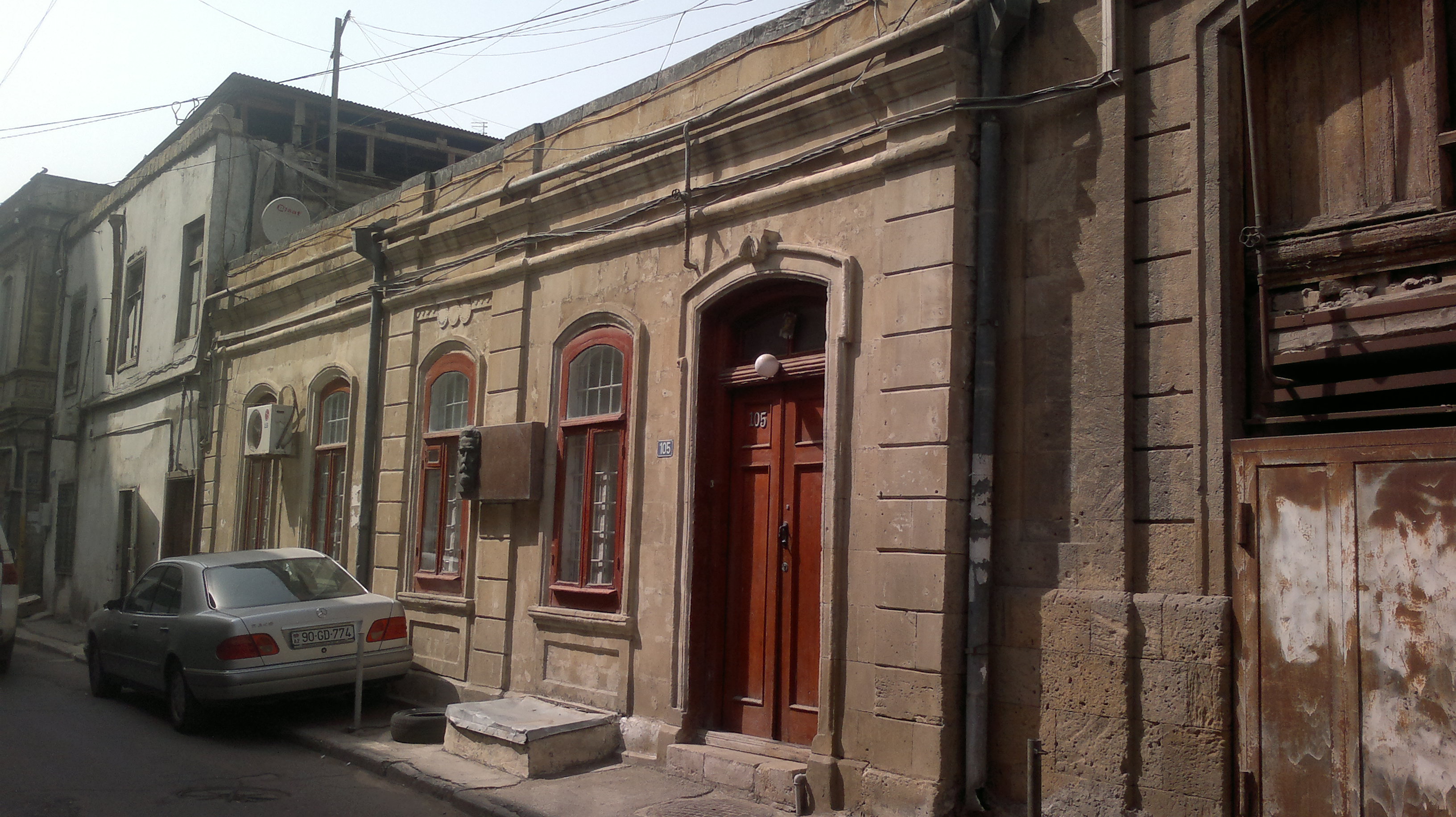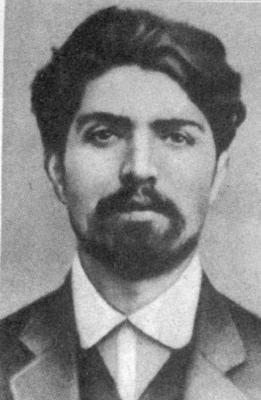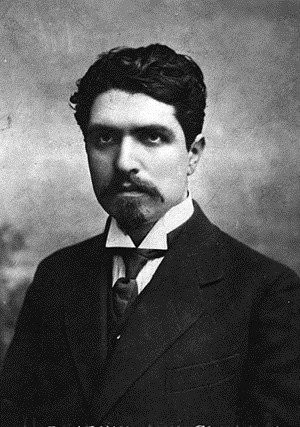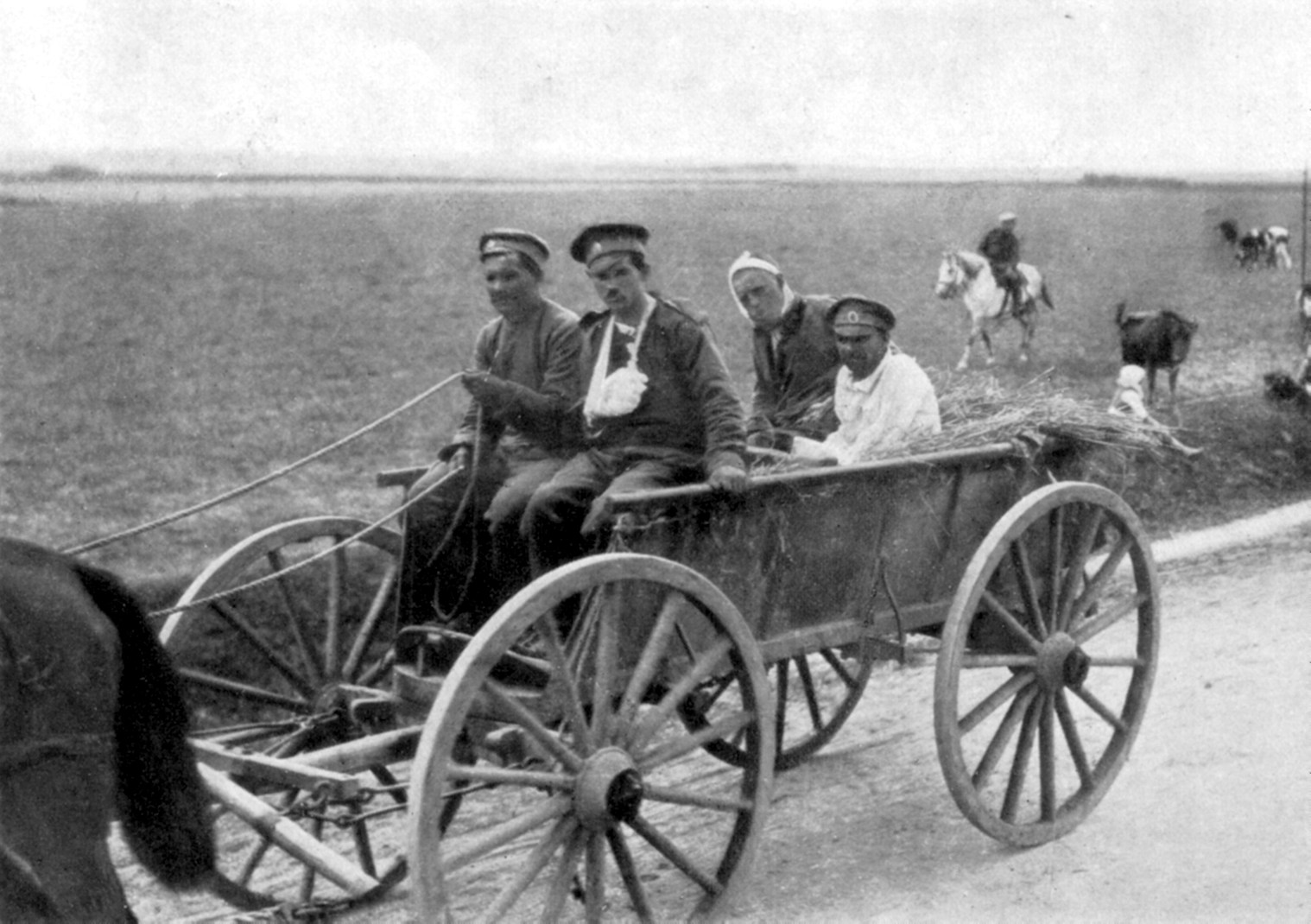|
Prokofy Dzhaparidze
Prokofy "Alyosha" Aprasionovich Dzhaparidze or Japaridze, ( ka, бғһбғ бғқбғҷбғқбғӨбғҳ бғҗбғӨбғ бғҗбғЎбғҳбғқбғңбғҳбғЎ бғ«бғ” бғҜбғҗбғӨбғҗбғ бғҳбғ«бғ”, ; 15 January 1880 вҖ“ 20 September 1918), was a Bolshevik revolutionary of Georgian origin. He was one of the leaders of the Red Army and the Bolshevik Party in Azerbaijan during the Russian Revolution. Dzhaparidze joined Bolsheviks in 1898 where he earned the nickname Alyosha, then moved to Baku. Helping the founding of the Azerbaijani socialist party Hummet, he became Delegate of the Caucasian Union of the RSDLP at the 3rd Congress of the RSDLP in London. He was arrested or exiled many times for his anti-tsarist activities in Russian Empire. After the February Revolution, he became a member of the Caucasian Regional Committee, and became one of the 26 leaders or commissars of the joined the Baku Commune. He took several different positions in the commune. Dzhaparidze, along with Stepan Shaumian, Mashadi Azizbekov, Ivan Fiolet ... [...More Info...] [...Related Items...] OR: [Wikipedia] [Google] [Baidu] |
Japaridze PA
Japaridze ( ka, бғҜбғҗбғӨбғҗбғ бғҳбғ«бғ”) is a Georgian surname which may refer to: *Japaridze (noble family), a noble family in Georgia * Liza Japaridze (b. 2003), better known by the stage name "Lizi Pop" *Manana Japaridze, Georgian origin singer from Azerbaijan *Giorgi Japaridze, modern Georgian logician * Otar Japaridze (b. 1987), Georgian ice dancer * Revaz Japaridze (1923вҖ“1994), Georgian writer *Prokofy Dzhaparidze (1880-1918), Georgian Communist activist * Tedo Japaridze (b. 1946), Georgian politician *Ucha Japaridze (1906-1988), Georgian painter * Zurab Japaridze Zurab Girchi Japaridze ( ka, бғ–бғЈбғ бғҗбғ‘ бғ’бғҳбғ бғ©бғҳ бғҜбғҗбғӨбғҗбғ бғҳбғ«бғ”; born 1 January 1976) is a Georgian politician and co-founder of a libertarian party called Girchi. On 26 December 2020 he founded a new political party, Gir ... (b. 1976), Georgian parliamentarian and leader of Girchi See also * Anjaparidze {{Surname Georgian-language surnames Surnames of Georgian origin ... [...More Info...] [...Related Items...] OR: [Wikipedia] [Google] [Baidu] |
Russian Revolution
The Russian Revolution was a period of Political revolution (Trotskyism), political and social revolution, social change in Russian Empire, Russia, starting in 1917. This period saw Russia Dissolution of the Russian Empire, abolish its monarchy and adopt a socialist form of government following two successive revolutions and Russian Civil War, a civil war. It can be seen as the precursor for Revolutions of 1917вҖ“1923, other revolutions that occurred in the aftermath of World War I, such as the German Revolution of 1918вҖ“1919. The Russian Revolution was a key events of the 20th century, key event of the 20th century. The Russian Revolution was inaugurated with the February Revolution in 1917, in the midst of World War I. With the German Empire inflicting defeats on the front, and increasing logistical problems causing shortages of bread and grain, the Russian Army was losing morale, with large scale mutiny looming. Officials were convinced that if Tsar Nicholas II abdicated ... [...More Info...] [...Related Items...] OR: [Wikipedia] [Google] [Baidu] |
Trans-Caspian Railway
The Trans-Caspian Railway (also called the Central Asian Railway, ) is a railway that follows the path of the Silk Road through much of western Central Asia. It was built by the Russian Empire during its expansion into Central Asia in the 19th century. The railway was started in 1879, following the Russian victory over Khokand. Originally it served a military purpose of facilitating the Imperial Russian Army in actions against the local resistance to their rule. However, when Lord Curzon visited the railway, he remarked that he considered its significance went beyond local military control and threatened British interests in Asia. History Construction Construction began in 1879 of a narrow-gauge railway to Gyzylarbat in connection with the Russian conquest of Transcaspia under General Mikhail Skobelev. It was rapidly altered to the standard Russian gauge of , and construction through to Ashkabad and Merv (modern Mary) was completed under General Michael Nicolaivitc ... [...More Info...] [...Related Items...] OR: [Wikipedia] [Google] [Baidu] |
Pereval
''The Pass'' () is a 1988 Soviet animated short film, directed by Vladimir Tarasov and written by Kir Bulychov Kir Bulychev (; 18 October 1934 вҖ“ 5 September 2003) was a pen name of Igor Vsevolodovich Mozheiko (РҳМҒРіРҫСҖСҢ Р’СҒРөМҒРІРҫР»РҫРҙРҫРІРёСҮ РңРҫР¶РөМҒР№РәРҫ), a Soviet Russian science fiction writer, critic, translator and historian. His magnum .... It is adapted from the first chapter titled ''The Pass'' from Bulychyov's novel ''The Settlement'' (printed in English as ''Those Who Survive''). Plot In a distant sector of the galaxy, a scientific spacecraft, *Pole*, from Earth makes an emergency landing on an uninhabited planet. Due to a radiation leak during the landing, the surviving crew is forced to abandon the ship quickly, leaving behind essential supplies like food and weapons. Over 17 years, the survivors establish a settlement far from the spacecraft, adapting to primitive methods to survive and using basic weapons to fend off local predators. The protagonist ... [...More Info...] [...Related Items...] OR: [Wikipedia] [Google] [Baidu] |
Caucasus
The Caucasus () or Caucasia (), is a region spanning Eastern Europe and Western Asia. It is situated between the Black Sea and the Caspian Sea, comprising parts of Southern Russia, Georgia, Armenia, and Azerbaijan. The Caucasus Mountains, including the Greater Caucasus range, have conventionally been considered as a natural barrier between Europe and Asia, bisecting the Eurasian landmass. Mount Elbrus, Europe's highest mountain, is situated in the Western Caucasus area of Russia. On the southern side, the Lesser Caucasus includes the Javakheti Plateau and the Armenian highlands. The Caucasus is divided into the North Caucasus and South Caucasus, although the Western Caucasus also exists as a distinct geographic space within the North Caucasus. The Greater Caucasus mountain range in the north is mostly shared by Russia and Georgia as well as the northernmost parts of Azerbaijan. The Lesser Caucasus mountain range in the south is mostly located on the territory of sout ... [...More Info...] [...Related Items...] OR: [Wikipedia] [Google] [Baidu] |
Communist
Communism () is a sociopolitical, philosophical, and economic ideology within the socialist movement, whose goal is the creation of a communist society, a socioeconomic order centered on common ownership of the means of production, distribution, and exchange that allocates products in society based on need.: "One widespread distinction was that socialism socialised production only while communism socialised production and consumption." A communist society entails the absence of private property and social classes, and ultimately money and the state. Communists often seek a voluntary state of self-governance but disagree on the means to this end. This reflects a distinction between a libertarian socialist approach of communization, revolutionary spontaneity, and workers' self-management, and an authoritarian socialist, vanguardist, or party-driven approach to establish a socialist state, which is expected to wither away. Communist parties have been described as radi ... [...More Info...] [...Related Items...] OR: [Wikipedia] [Google] [Baidu] |
Ivan Fioletov
Ivan Timofeevich Fioletov (Russian: РҳРІР°РҪ РўРёРјРҫС„РөРөРІРёСҮ РӨРёРҫР»РөСӮРҫРІ; 1884 вҖ“ 20 September 1918) was a Russian people, Russian revolutionary activist and one of the Bolshevik Party leaders in Azerbaijan during the Russian Revolution of 1917, Russian Revolution. Biography Fioletov was born into a poor peasant family in Zherdevsky District, Tugolukovo, in the Tambov Governorate of the Russian Empire. In 1890 his family moved to Baku where he worked as a metalworker. He became a member of Russian Social Democratic Labour Party in 1900 and during the Russian Revolution of 1905 he was one of the trade union activists of oil-industry workers in Groznyy and Baku. Fioletov became one of the 26 Baku Commissars of the Soviet Commune that was established in the city after the October Revolution. When the Commune was toppled by the Centro Caspian Dictatorship, a British-backed coalition of Dashnaks, Social Revolutionaries, SRs and Mensheviks, Fioletov and his comrades were cap ... [...More Info...] [...Related Items...] OR: [Wikipedia] [Google] [Baidu] |
Mashadi Azizbeyov
Mashadi Azizbey oghlu Azizbeyov, also spelled Azizbekov (; ; January 6, 1876 - September 20, 1918) was a Soviet revolutionary of Azerbaijani origin, leader of the revolutionary movement in Azerbaijan, one of the first Azeri Marxists, Provincial Commissioner and Deputy People's Commissar of Internal Affairs, gubernial commissar for Baku. He was one of the 26 Baku Commissars. Azizbeyov became a member of Russian Social Democratic Labour Party and one of the leaders of Muslim Social Democratic Party. After the October Revolution, he joined the Baku Comissars. As the Baku Commune was voted out of power in July 1918, Azizbeyov and rest of the Commissars abandoned Baku and fled across the Caspian Sea. However, they were captured by anti-Soviet forces. On the night of September 20, Azizbeyov was executed by a firing squad in a remote location between the stations of Pereval and Akhcha-Kuyma on the Trans-Caspian railway. Currently, views on Azizbeyov in Azerbaijan are mixed. Azerbaijan ... [...More Info...] [...Related Items...] OR: [Wikipedia] [Google] [Baidu] |
Stepan Shaumian
Stepan Georgevich Shaumian (; ; 1 October 1878 вҖ“ 20 September 1918) was an Armenian Bolshevik revolutionary and politician active throughout the Caucasus. His role as a leader of the Russian Revolution in the Caucasus earned him the nickname of the "Caucasian Lenin", a reference to Russian revolutionary leader Vladimir Lenin. The founder and editor of several newspapers and journals, Shaumian is best known as the head of the Baku Commune, a short-lived committee appointed by Lenin in March 1918 with the task of leading the revolution in the Caucasus and West Asia. His tenure as leader of the Baku Commune was marred with numerous problems including ethnic violence between Baku's Armenian and Azerbaijani populations, attempting to defend the city against an advancing Turkish army, all the while attempting to spread the cause of the revolution throughout the region. Unlike many of the other Bolsheviks at the time, he preferred to resolve many of the conflicts he faced peacef ... [...More Info...] [...Related Items...] OR: [Wikipedia] [Google] [Baidu] |
26 Baku Commissars
The 26 Baku Commissars were Bolshevik and Left SR, Left Socialist Revolutionary (SR) members of the Baku Commune. The commune was established in the city of Baku, which was then the capital of the briefly independent Azerbaijan Democratic Republic, and is now the capital of the Republic of Azerbaijan. The commune, led by Stepan Shahumyan, existed until 26 July 1918 when the Bolsheviks were forced out of power by a coalition of Dashnaks, Socialist-Revolutionary Party, Right SRs and Mensheviks. After their overthrow, the Baku commissars attempted to leave Baku but were captured by the Centrocaspian Dictatorship and imprisoned. On 14 September 1918, during the Battle of Baku, fall of Baku to Ottoman forces, Red Army soldiers broke into their prison and freed the commissars; they then boarded a ship to Krasnovodsk, where they were promptly arrested by local authorities and, on the night of 20 September, executed by a firing squad between the stations of Pereval and Akhcha-Kuyma on t ... [...More Info...] [...Related Items...] OR: [Wikipedia] [Google] [Baidu] |
February Revolution
The February Revolution (), known in Soviet historiography as the February Bourgeois Democratic Revolution and sometimes as the March Revolution or February Coup was the first of Russian Revolution, two revolutions which took place in Russia in 1917. The main events of the revolution took place in and near Petrograd (now Saint Petersburg), the then-capital of Russia, where long-standing discontent with the monarchy erupted into mass protests against food rationing on 23 February Old Style and New Style dates, Old Style (8 March Old Style and New Style dates, New Style). Revolutionary activity lasted about eight days, involving mass demonstrations and violent armed clashes with police and Special Corps of Gendarmes, gendarmes, the last loyal forces of the Russian monarchy. On 27 February O.S. (12 March N.S.), most of the forces of the capital's garrison sided with the revolutionaries. In the same day, the Russian Provisional Government, made up by left-leaning State Duma (Russ ... [...More Info...] [...Related Items...] OR: [Wikipedia] [Google] [Baidu] |







